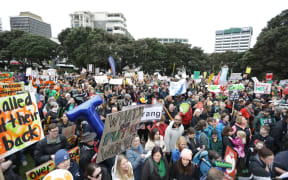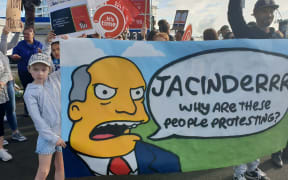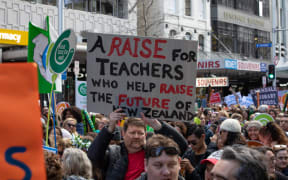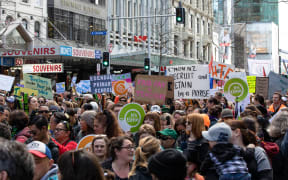Secondary teachers voting on possible strike action next year are worried about high workloads and a shortage of teachers.
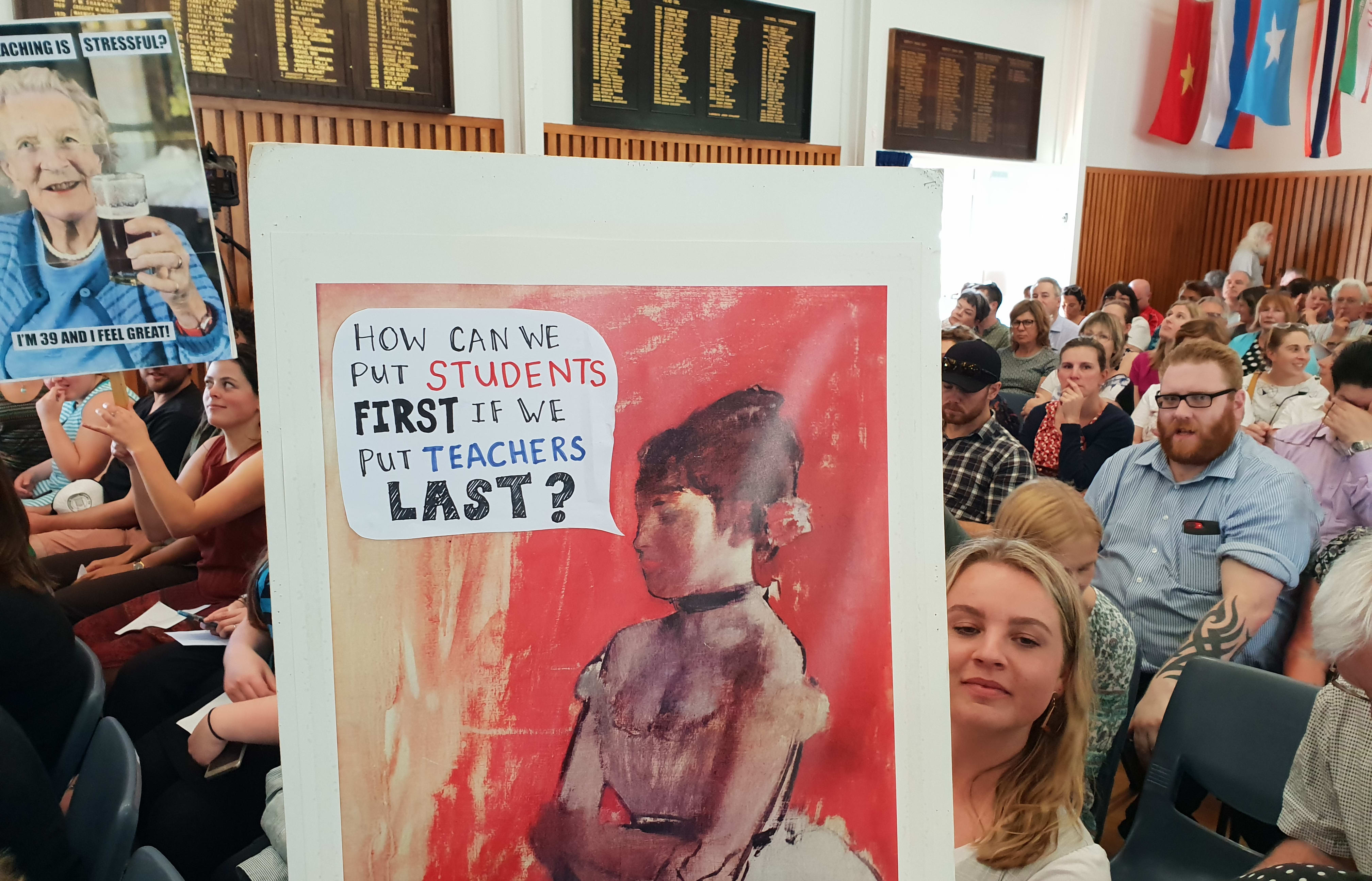
Secondary teachers at the PPTA Hutt Valley meeting. Photo: RNZ / John Gerritsen
The Post Primary Teachers Association is nearly half-way through a series of regional ballots where members are voting on whether to accept the government's latest pay offer and whether to hold a one-day strike next year.
If they reject the offer and agree to a strike, they will set the scene for joint action in 2019 with primary teachers, who are currently holding a week of rolling one-day strikes in support of their pay claim.
At the union's Hutt Valley ballot in Naenae yesterday, members told RNZ they would not go on strike without good reason and that the government's treatment of their sister union, the Educational Institute, had not deterred them.
The Employment Relations Authority last week said the Educational Institute should accept the government's offer of three consecutive 3 percent pay rises for primary and intermediate school teachers and criticised the union's claim for a 16 percent pay rise over two years as unrealistic.
PPTA had claimed a single increase of 15 percent and in response the government offered its members the same pay rise as it had offered primary school teachers.
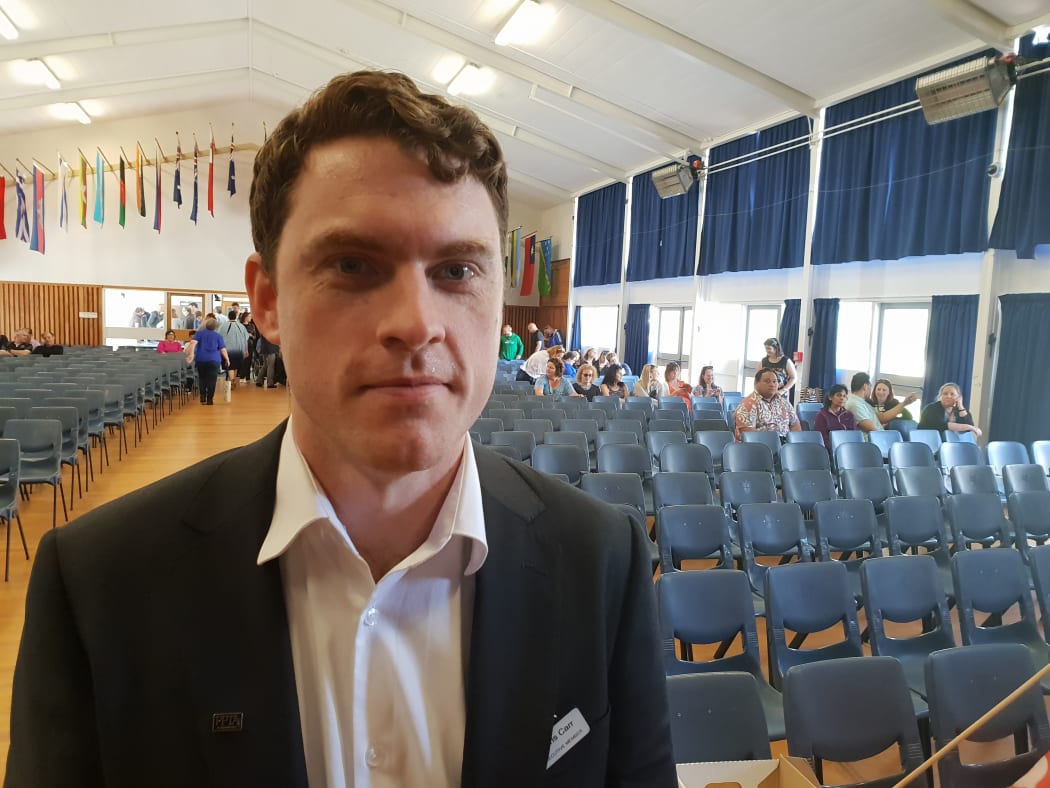
PPTA's Hutt Valley and Wairarapa representative Chris Carr. Photo: RNZ / John Gerritsen
PPTA's Hutt Valley and Wairarapa representative Chris Carr said that had not weakened the resolve of secondary teachers.
"What we're seeing is growing anger and I think the ERA statements only fuel that anger. Members and teachers are just generally fed up with the conditions they are facing and with being undervalued, and certainly nothing which the minister is saying is helping," he said.
Jacqui Lucas said she had been teaching for 27 years and was saddened by the way primary teachers were being treated in their pay negotiations.
She said teachers needed to band together in order to fight for improvements.
"I'm in senior leadership, we can't fill places for next year. That's happening all around the country. Unless we do something and we unite around this, nothing's going to change and we're going to be in some tricky situations come 2019."
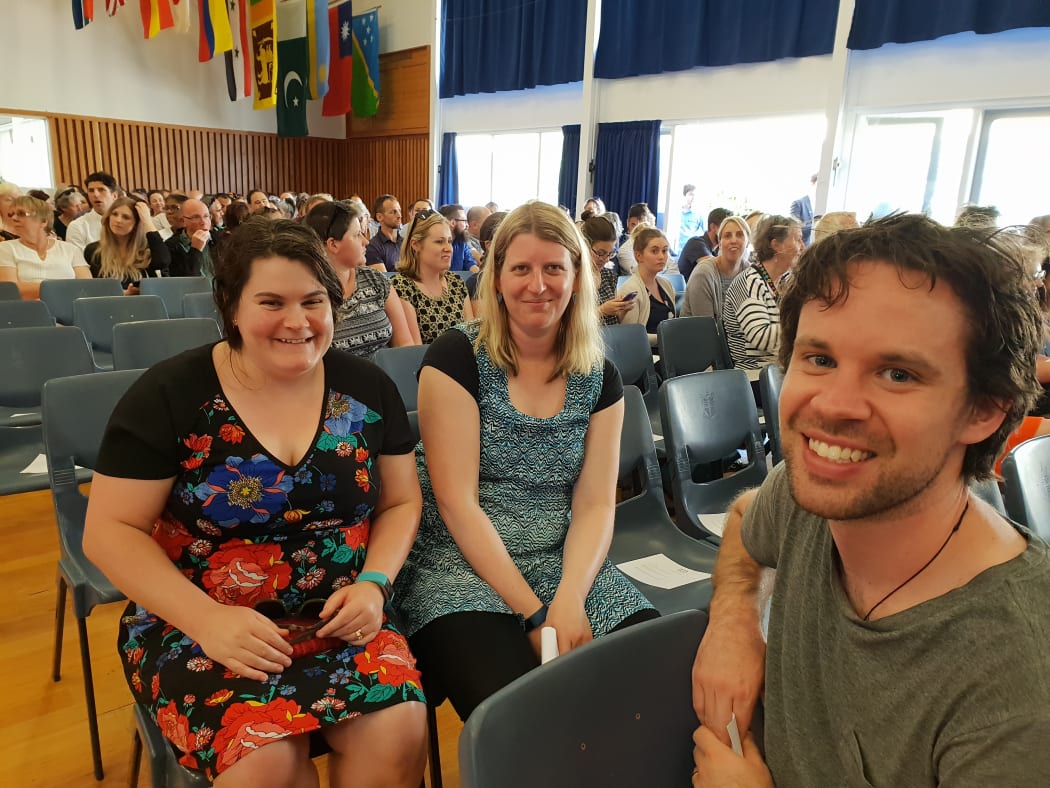
Teachers Sara McKee, Fiona Mcdiarmid and David Starshaw at the PPTA meeting. Photo: RNZ / John Gerritsen
Ms Lucas said if teachers did decide to strike, it was because it was necessary.
"What parents have to realise, and greater New Zealand has to realise is that we're in a crisis situation. Teachers don't go on strike and lose pay and upset parents without good reason."
Some teachers told RNZ too much was expected of them.
"I'm just thinking about the sustainability of teaching, because the workload's really high," Sara McKee said.
"It's all about workload, we're just pretty stressed at the moment," Fiona McDiarmid said.
But teacher David Starshaw said the vote would not be an easy decision for him.
"It's a rock and a hard place. I can see where the government's coming from. But I can also see where we're coming from. It's been a long time in the making where we've got to at this point, and it's not going to be quick fix," he said
The union's regional meetings would continue this week and next, with the final ballots in Wellington and Greymouth on Friday next week.
